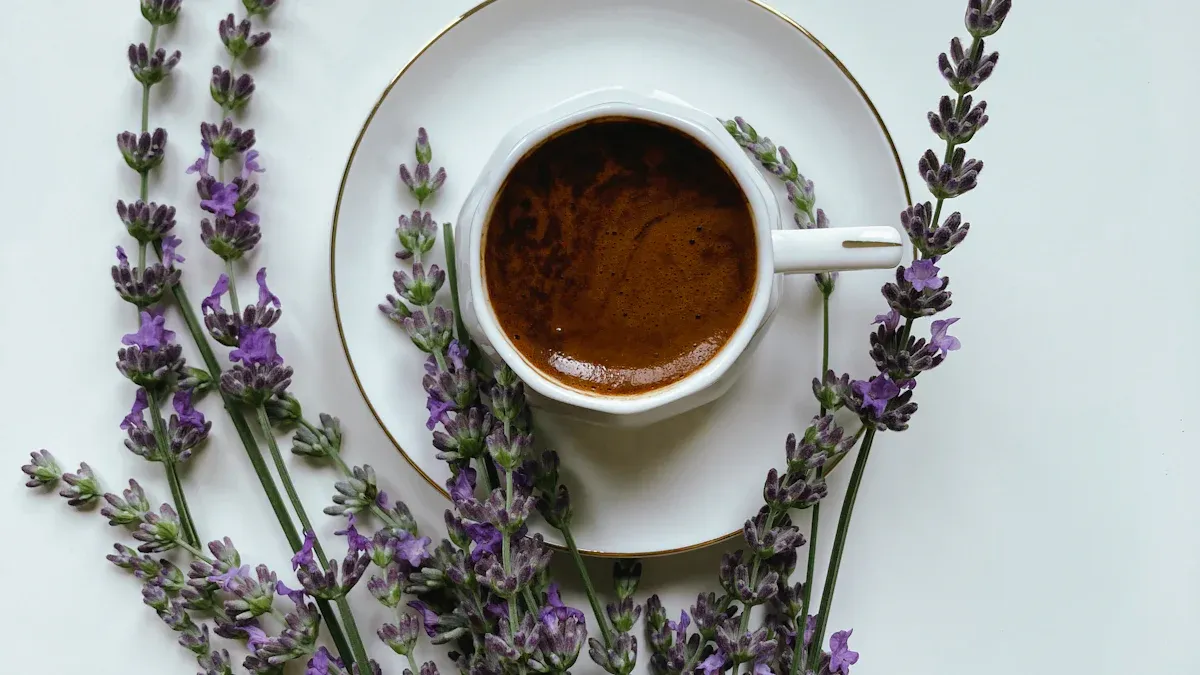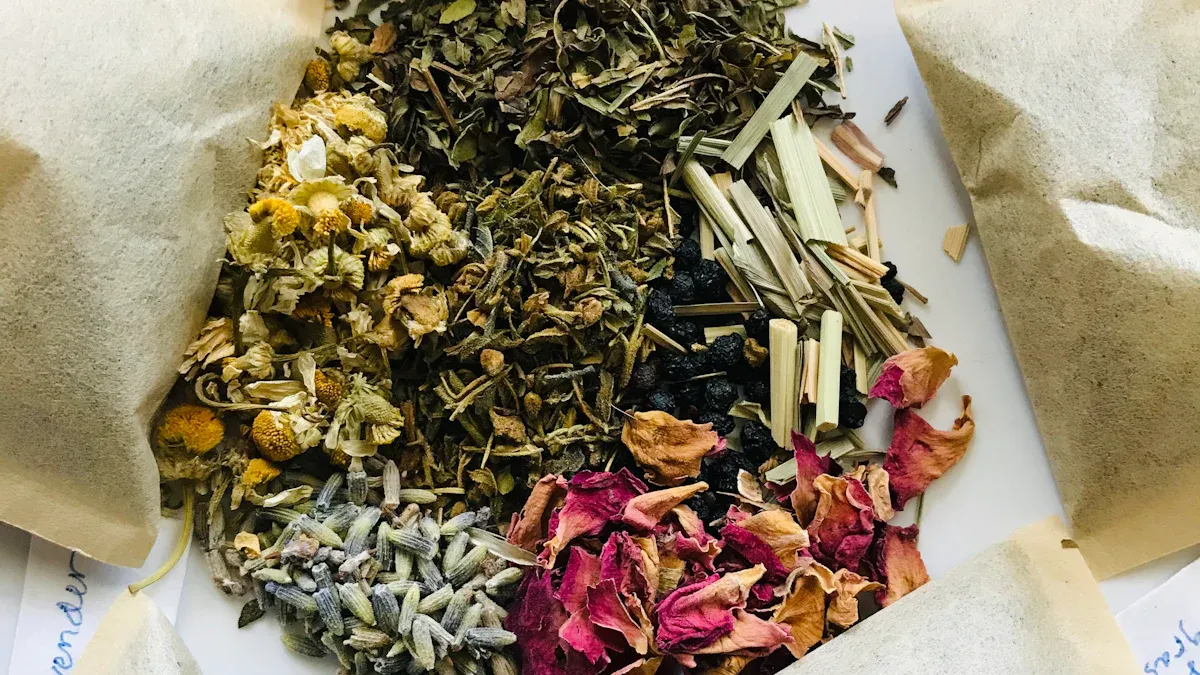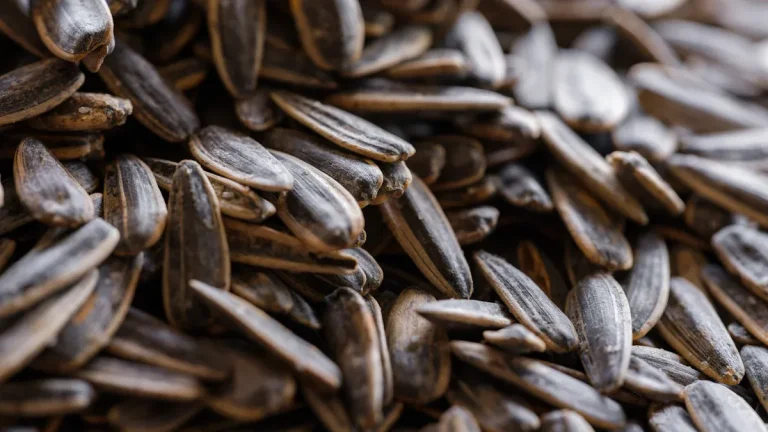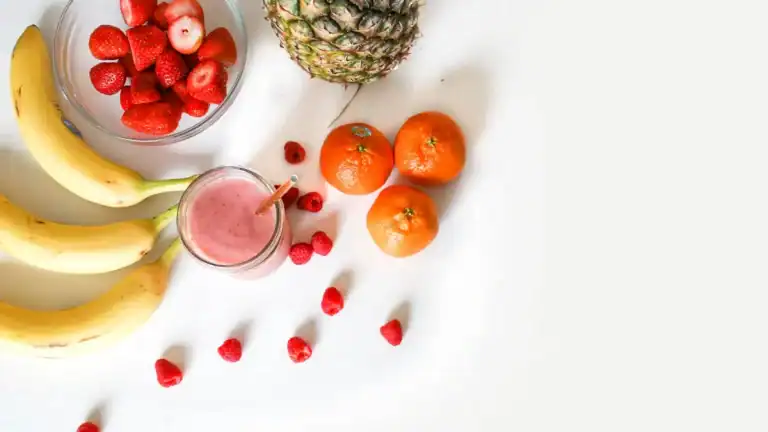
Are you curious why lavender tea is so popular these days? Check out the Best Benefits you get with every cup:
Relaxation and stress relief
Anxiety support
Better sleep
Antioxidant power
Heart health
Immune boost
Less inflammation
Antimicrobial effects
Enhanced lactation
Emotional wellbeing
Lavender brings tranquility to your routine. People love using lavender in teas, lattes, and even meditation for its calming and heart-supporting properties.
Key Takeaways
Lavender tea promotes relaxation and stress relief, making it a great choice for unwinding after a long day.
Drinking lavender tea can improve sleep quality, helping you fall asleep faster and wake up refreshed.
Lavender tea supports emotional wellbeing by reducing anxiety and depression symptoms, boosting your mood naturally.
What Is Lavender Tea

Origin
You might wonder where lavender tea comes from. Lavender grows best in the Mediterranean, especially in places like Greece and Italy. People have loved this plant for thousands of years. Ancient Greeks used lavender to help with headaches and stomach problems. Romans added lavender to their baths and even cooked with it. Egyptians used it for perfumes and mummification. In Asia, lavender became popular for its calming effects. During the Middle Ages, people put lavender in their linens to keep bugs away. Today, you can find lavender all over the world, and many cultures enjoy it in tea.
Lavender tea stands out because it’s made from the dried flower buds of the lavender plant. Here’s a quick look at how scientists classify lavender:
Classification Level | Name |
|---|---|
Kingdom | Plantae |
Subkingdom | Tracheobionta |
Superdivision | Spermatophyta |
Division | Magnoliophyta |
Class | Magnoliopsida |
Subclass | Asteridae |
Order | Lamiales |
Family | Lamiaceae |
Genus | Lavandula |
Species | Lavandula angustifolia |
The main parts that give lavender its scent and benefits are linalyl acetate, linalool, 1,8-cineole, terpinen-4-ol, beta-ocimene, and camphor.
How It’s Made
Making lavender tea at home is simple. You just need dried lavender buds and hot water. Here’s how you do it:
Gather about two teaspoons of dried lavender buds for each cup of water.
Boil fresh water in a teapot.
Place the lavender buds in a tea infuser or tea ball.
Pour the boiling water over the buds and let them steep for 10 minutes.
Remove the buds and pour your tea into a cup. You can add honey if you like it sweet.
Tip: Try mixing lavender with chamomile or mint for a new flavor. You can even chill your lavender tea and add berries for a refreshing iced drink!
Best Benefits of Lavender Tea
Relaxation & Stress Relief
You know that feeling when you just want to unwind after a long day? Lavender tea gives you that soothing moment. The calming effect of lavender helps your mind slow down and lets your body relax. Many people drink this tea to ease stress and find relief from daily worries. Research shows that lavender can help with restlessness and disturbed sleep, which often come from anxiety. When you sip lavender tea, you invite calm and peace into your routine.
Tip: Try drinking lavender tea in the evening to help your body relax before bed.
Anxiety & Depression Support
If you struggle with anxiety or low moods, lavender tea might be your new best friend. Studies show that lavender can ease anxiety symptoms and even help with depression. People who drink lavender tea often notice a drop in anxious feelings and a boost in their mood. The calming properties of lavender work like a gentle hug for your mind. Regular use can make you feel more balanced and less overwhelmed by stress.
Lavender tea is more effective than a placebo in reducing anxiety symptoms.
It also helps lower depression scores.
The calming effect grows stronger with regular use.
Sleep Improvement
Do you want better sleep? Lavender tea is famous for helping people fall asleep faster and stay asleep longer. The soothing aroma and calming effect of lavender help your brain relax. Studies show that lavender tea increases deep sleep duration, so you wake up feeling refreshed. If you have trouble sleeping, try adding lavender tea to your nighttime routine.
Sleep Benefit | Description |
|---|---|
Fall asleep faster | Lavender tea helps you relax before bed. |
Stay asleep longer | The calming effect keeps your mind at ease. |
Wake up refreshed | Deep sleep means better mornings. |
Antioxidant Power
Lavender tea packs a punch when it comes to antioxidants. These powerful compounds protect your body from damage caused by free radicals. Free radicals can harm your cells and lead to health problems like cancer and aging. Lavender tea boosts antioxidants in your body, helping you stay healthy and strong. It contains vitamin C, calcium, and magnesium, which support your immune system and overall health.
Antioxidants in lavender tea destroy free radicals.
This protection lowers your risk of disease and infection.
Drinking lavender tea helps your body detox and stay healthy.
Heart Health
Your heart works hard every day. Lavender tea supports heart health by improving circulation and reducing inflammation. The calming effect of lavender helps lower blood pressure and keeps your heart steady. People who drink lavender tea often notice less pain and more energy. The antioxidants in lavender tea also protect your heart from damage.
Note: Lavender tea is a gentle way to care for your heart without harsh side effects.
Immune Support
You want your immune system to stay strong, right? Lavender tea helps balance your immune system and keeps it working properly. The tea contains vitamin C, magnesium, and calcium, which fight off illness and infection. Lavender tea’s anti-inflammatory and antioxidant properties make it a great choice for boosting your health. You can enjoy the best benefits of lavender tea while keeping your body protected.
Lavender tea helps your body fight germs.
It keeps your immune system balanced.
The nutrients in lavender tea support overall health.
Inflammation Reduction
Pain and swelling can slow you down. Lavender tea contains compounds that reduce chronic inflammation and improve circulation. If you deal with joint pain or sore muscles, lavender tea can help you feel better. The soothing effect of lavender calms your body and eases discomfort. You get the best benefits of less pain and more movement.
Lavender tea helps reduce pain from inflammation.
It improves blood flow and supports healing.
The calming effect makes you feel more comfortable.
Antimicrobial Effects
Lavender tea does more than just taste good. It has antimicrobial properties that help fight germs and keep your skin healthy. The tea’s natural compounds protect you from infections and support your immune system. People use lavender tea to soothe skin problems and prevent illness. You get the best benefits of clean skin and a strong body.
Tip: Use cooled lavender tea as a gentle skin rinse for extra soothing.
Enhanced Lactation
If you’re breastfeeding, you might wonder about lavender tea benefits. Some people say lavender helps increase milk production and comfort. Lavender oil may boost prolactin levels when used in massage. Still, experts suggest caution because lavender has estrogenic activity and there’s not enough data on safety for nursing mothers. Always talk to your doctor before using lavender tea for lactation.
Lavender may comfort nursing mothers.
It could help with milk production, but safety is not clear.
Avoid lavender tea while breastfeeding unless your doctor approves.
Emotional Wellbeing
Lavender tea lifts your spirits and helps you feel more positive. Regular use can lower anxiety and depression scores, making you feel happier. Lavender tea is easy to find and affordable, so you can enjoy its best benefits anytime. The calming and soothing effects of lavender tea support your emotional health and help you handle stress.
Improvement Type | Effect on Wellbeing |
|---|---|
Anxiety Reduction | Significant decrease in scores |
Depression Reduction | Significant decrease in scores |
Accessibility | Inexpensive and easy to obtain |
Drinking lavender tea is a simple way to boost your mood and support your mental health.
Side Effects
Common Side Effects
Most people enjoy lavender tea without any problems, but you might notice a few mild side effects. These usually go away on their own. Here’s a quick look at what you could experience:
Side Effect |
|---|
Constipation |
Headache |
Increased appetite |
Skin irritation |
Diarrhea |
You may feel a headache or tummy troubles like constipation or diarrhea. Some people notice their skin feels itchy or irritated after drinking lavender tea. Others say they feel hungrier than usual. If you notice any of these, try drinking less or stop for a while.
If you have allergies to flowers or plants, start with a small amount of lavender tea to see how your body reacts.
Precautions
Lavender tea is safe for most people, but some should be careful. You want to avoid problems, so check this list before you sip:
Young boys, especially before puberty, should not drink lavender tea. Some doctors worry about possible hormone changes.
If you know you have a lavender allergy, skip this tea.
If you ever had skin irritation from lavender products, you might react to the tea too.
Some people worry about lavender causing hormone problems in kids. Recent studies show that lavender is safe for most children and adults. Concerns started from one old study, but new research says you can use lavender safely in personal care and tea.
Always talk to your doctor if you have questions about trying new herbal teas.
Lavender Tea Recipe

Simple Recipe
You can make a delicious cup of lavender tea at home with just a few ingredients. Here’s a simple recipe you can try today:
Ingredients | Instructions |
|---|---|
1 tablespoon dried lavender buds | 1. Place the lavender buds in a tea infuser or tea ball. |
8-10 ounces hot water | 2. Pour hot water (just off the boil) over the lavender in your favorite mug. |
Sweetener (optional) | 3. Cover and let the tea steep for 5 to 10 minutes, depending on how strong you like it. |
Lemon slice or honey (optional) | 4. Remove the infuser. Add honey or a slice of lemon if you want extra flavor. |
You can also add a few fresh mint leaves for a cool twist. If you want iced lavender tea, let it cool and pour over ice cubes. Garnish with a sprig of mint or a slice of lemon for a pretty touch.
Tips
Use culinary-grade lavender for the best taste and safety.
Try both fresh and dried lavender to see which flavor you prefer.
Adjust the steeping time to control the strength of your tea. Shorter steeping gives a lighter taste, while longer steeping brings out more lavender flavor.
Blend lavender with other herbs like chamomile or mint for a unique tea experience.
Store dried lavender in airtight glass jars or metal tins. Keep them in a cool, dark place to keep the fragrance and flavor fresh. Label your jars with the date and use within a year for the best tea.
Tip: If you notice any musty smell or see mold, throw out the lavender and get a fresh batch.
Enjoy your homemade lavender tea any time you need a moment of calm!
You get so many benefits from lavender tea. Experts recommend lavender for relaxation, better sleep, and a boost in mood.
Lavender helps with anxiety and depression.
Lavender tea calms your mind and body.
Lavender supports restful sleep.
Lavender offers anti-inflammatory effects.
Try lavender tea and enjoy a peaceful moment!
FAQ
Can you drink lavender tea every day?
Yes, you can enjoy lavender tea daily. Most people find it safe. If you notice side effects, take a break or ask your doctor.
Does lavender tea taste sweet or bitter?
Lavender tea tastes floral and slightly sweet. Some people notice a mild bitterness. You can add honey or lemon for extra flavor.
Is lavender tea safe for kids?
Lavender tea is usually safe for older kids. Young boys should avoid it because of possible hormone effects. Always check with your pediatrician first.




